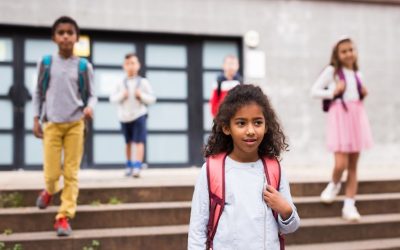Navigating Uncertainty: Empowering our Teens and Teachers to Thrive in Today’s World
Creating a Supportive School Environment:
A safe and supportive school environment forms the foundation for students to learn effectively, especially when the outside world is fraught with uncertainty. Teachers and schools play a crucial role in cultivating this atmosphere by fostering respect, inclusivity, and empathy among students. Encouraging open communication and addressing any signs of bullying or discrimination can go a long way in promoting a positive environment where students feel heard, seen, and valued.
Collaboration between school faculty, families, and communities is also necessary to ensure that students’ needs are met comprehensively, as students often require extra guidance and resources to navigate these uncertain times. By working together, we can create a nurturing environment where students feel empowered and supported to face whatever challenges may come their way.
Building Emotional Resiliency:
It is essential to equip our students not only with academic skills but also with the emotional resiliency required to face uncertain situations. Encouraging teens to express their feelings, fears, and frustrations can help them better manage their emotions, which is fundamental to overall mental and emotional wellbeing. Teachers and family members can help students develop coping mechanisms by modeling effective stress-management techniques and sharing personal experiences of overcoming adversity.
Practicing mindfulness, meditation, and other relaxation strategies can also help teens maintain a sense of inner calm and build emotional resilience. It is vital to remind our young ones that it’s okay to feel overwhelmed, and these practices will help them cope better during difficult times.
Fostering Critical Thinking and Problem-Solving Skills:
Developing critical thinking and problem-solving skills can help students respond to uncertainties with greater clarity and confidence. Teachers can guide their students by providing opportunities to engage in meaningful discussions, debates, and participatory group projects that challenge conventional ideas, encourage divergent thinking, and require creative problem solving.
By allowing teens to experiment, make mistakes, and ultimately learn from their experiences, we are empowering them to think critically and develop their own unique solutions to problems, which will be invaluable in navigating an unpredictable world.
Utilizing Technology to Enhance Learning and Connectivity:
Technology has played a remarkable role in keeping us connected, informed, and educated during uncertain times. By incorporating digital learning tools, teachers can engage students more effectively and help them acquire essential skills for the modern age.
Taking advantage of these resources, teachers and schools can offer various online platforms that foster digital citizenship, access to educational resources, and opportunities for students to connect with their peers worldwide. We should keep harnessing these tools to promote global awareness, empathy, and collaboration while equipping them with the necessary digital literacy skills.
Inspiring Hope through Academics and Positive Role Models:
In a world where our youth can sometimes feel overwhelmed, it is of utmost importance to offer hope, encouragement, and inspiration to students. By focusing on the accomplishments and contributions of individuals and communities throughout history, we can teach our students that they too can make a positive impact on the world amidst adversity.
Teachers, as positive role models, must also be a source of inspiration and hope. By sharing personal stories, guiding students towards their passions, and helping them set attainable goals, teachers can inspire their students to believe in themselves and their own potential to make a difference.
Conclusion:
Facing an uncertain world, it is our collective responsibility to nurture and support our teens, equipping them with the tools and skills they need to thrive personally, academically, and emotionally. By fostering a supportive school environment, nurturing emotional resiliency, promoting critical thinking and problem-solving, utilizing technology for enhanced learning, and inspiring hope in students, we can better prepare them to navigate a complex and unpredictable world successfully. As adults, teachers, and mentors, we must stand united in our efforts to ensure our students feel empowered, hopeful, and resilient, ready to shape a brighter future for themselves and generations to follow.
Latest News & Updates
How to Support Your Child in Finishing the School Year Strong
As we approach the end of the school year, it's important for parents to help their...
Navigating the Digital World: Understanding the Impact of Screentime on Students
In today's digital age, teens are constantly surrounded by screens - whether it's...
Celebrating Presidents’ Day: A Lesson Plan for Teachers and Students
Presidents' Day is a federal holiday celebrated on the third Monday of February...



